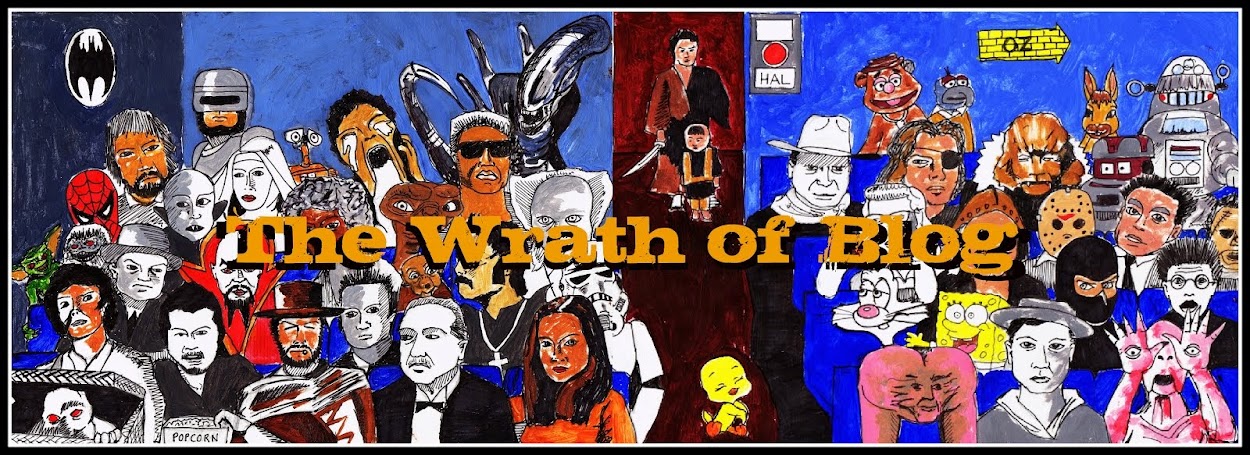 In the future, the Tyrell Corporation has manufactured bioengineered humans known as Replicants, commonly used for slave labour off-Earth. Granted the intelligence of their makers, the Replicants tend to start questioning their purpose, often resulting in mutiny and violence. To counter this, Tyrell has limited their lifespan to four years in the hope that they will die before such thoughts can even enter their mind. However, four Replicants (Rutger Hauer's leader Roy Batty, Daryl Hannah's Pris, Brion James' Leon and Joanna Cassidy's Zhora) have rebelled against their masters and made it back to Earth. It is the job of 'Blade Runner' Rick Deckard (Ford) to hunt the foursome down and 'retire' them before they can cause any real damage. Deckard questions the morality of his job, especially when he meets Tyrell's latest creation, the stunning Rachael (Sean Young), a Replicant who isn't aware of what she is.
In the future, the Tyrell Corporation has manufactured bioengineered humans known as Replicants, commonly used for slave labour off-Earth. Granted the intelligence of their makers, the Replicants tend to start questioning their purpose, often resulting in mutiny and violence. To counter this, Tyrell has limited their lifespan to four years in the hope that they will die before such thoughts can even enter their mind. However, four Replicants (Rutger Hauer's leader Roy Batty, Daryl Hannah's Pris, Brion James' Leon and Joanna Cassidy's Zhora) have rebelled against their masters and made it back to Earth. It is the job of 'Blade Runner' Rick Deckard (Ford) to hunt the foursome down and 'retire' them before they can cause any real damage. Deckard questions the morality of his job, especially when he meets Tyrell's latest creation, the stunning Rachael (Sean Young), a Replicant who isn't aware of what she is.Blade Runner is simply astonishing on a number of levels. When Vangelis' score - a majestic combination of the classical and synthesised - kicks in early on, Scott's film becomes an experience on a whole other plain. The production design, which is a noir-ish hybrid of choking, rainy streets and golden interiors blackened by shadows, had never been seen before and hasn't been so effectively moulded since. This feels like a wholly tangible future, lived-in and almost familiar, and although we may not have flying cars, super-beings crafted by science or Atari as a thriving corporation, the future depicted in Blade Runner isn't much different to the world we live in today. The sets, special effects, music and editing are all combined by Scott to create a world we can almost touch. The fleeting moments of violence, something the film was criticised for on its original release, are fast, shocking and ugly. There's a scene in which a death occurs in slow-motion through various panes of glass which is almost beautiful to behold, but even this plays out with an air of tragedy. The line between good and bad is certainly blurred here.
I haven't read Do Androids Dream of Electric Sheep? by Philip K. Dick, but common opinion is that Blade Runner eclipses its source and then some. It's the stuff of dreams for science-fiction aficionados, going way beyond its thriller premise to touch on some big philosophical questions and ponder the very definition of being human. Hauer's masterful portrayal of Batty ends with a monologue improvised by the actor, and his speech is one the most memorable and quoted pieces of dialogue in cinema history for good reason. It is moving and stirring and will catch you off guard, forcing you to reflect on everything you have just seen for days after. Ford is impressive too, downplaying the goofy charisma of Han Solo and Indiana Jones and growing into the beaten-down, conflicted bounty hunter. But the real star here is Ridley Scott himself, who has never made a finer film, crafting a landscape that would go on to be the go-to aesthetic for dystopian futures. It would take either a stupid or unnervingly brave director to make a follow-up, but if any director has the ability to expand this universe into something even more spectacular, it's Denis Villeneuve.
Directed by: Ridley Scott
Starring: Harrison Ford, Rutger Hauer, Sean Young, Edward James Olmos, Daryl Hannah, M. Emmet Walsh, William Sanderson, Brion James
Country: USA/Hong Kong
Rating: *****
Tom Gillespie


No comments:
Post a Comment